The 2024 Reveal Subscriber Poll
Our third annual Reader's Poll includes an eclectic mix of ambitious Hollywood films, lively American independents, and gems from around the globe.
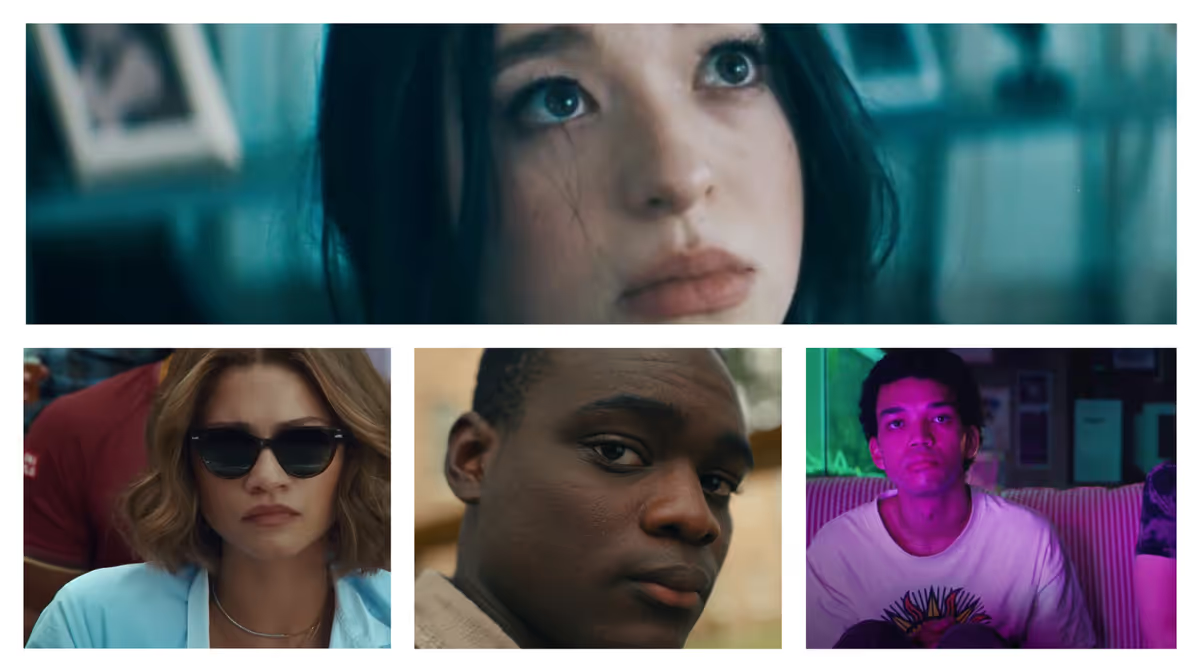
The Top 10
1. Anora (204 pts., 60 ballots)
2. Challengers (170 pts., 50 ballots)
3. Nickel Boys (134 pts., 38 ballots)
4. I Saw the TV Glow (112 pts., 33 ballots)
5. The Brutalist (90 pts., 28 ballots)
6. Dune: Part Two (83 pts., 24 ballots)
7. Furiosa: A Mad Max Saga (81 pts., 29 ballots)
8. Do Not Expect Too Much From the End of the World (80 pts., 25 ballots)
9. Red Rooms (68 pts., 21 ballots)
10 Hundreds of Beavers (60 pts. 22 ballots)
Significant others: The Substance (48 pts.), Evil Does Not Exist (42 pts.), The Beast (37 pts.), Nosferatu (38 pts.), Hit Man (31 pts.), Janet Planet (29 pts.), Sing Sing (29 pts.), Civil War (29 pts.), A Real Pain (26 pts.), Rebel Ridge (25 pts.), All We Imagine As Light (25 pts.).
The Reveal is a reader-supported publication. If you want to participate in next year’s poll, be part of our comment community, and have exclusive access to many articles and special features, please consider a paid subscription.
Some notes on the results:
• I majored in Comparative Literature in college. I’ve been unable to help either one of my daughters do their math homework since third grade. Bottom line here: I’ve kept the voting simple with my point allotment system (5 pts. for #1, 4 pts. for #2, et al.) and a pen-and-paper tabulation process. If I were more ambitious, I’d allow readers to add weight to certain titles on their ballots to reflect how much passion that might feel for one movie over another.
Nevertheless, I’m keenly interested in discovering how much people really like these movies, because even among dedicated cinephiles like readers of The Reveal, more people will have seen Dune: Part Two and Furiosa: A Mad Max Saga than, say, Red Rooms or Do Not Expect Too Much From the End of the World. With that in mind, I’m going to use simple math again to divide the number of points a film received with the number of ballots on which it appeared. Here’s how the Top 10 would be re-ordered: Nickel Boys (3.53), Dune: Part Two (3.45), Anora (3.4), Challengers (3.4), I Saw the TV Glow (3.39), Red Rooms (3.23), Do Not Expect Too Much From the End of the World (3.2), The Brutalist (3.21), Furiosa: A Mad Max Saga (2.79), Hundreds of Beavers (2.72). So not a massive shift in results here, but worth thinking about.
• Looking at the 2022 and 2023 poll results, Anora barely edged out the point total for last year’s winner, Killers of the Flower Moon, and did not reach the heights of the previous year’s one-two combination of TÁR and Everything Everywhere All at Once. Though participation numbers are maybe slightly below previous years, the overall result seems to reflect my observation that 2024 was short on instant classics, but long on parity. There were many excellent films to consider here and the votes were spread out quite a bit among them.
• In the Reveal Readers Are Special department, I think it’s worth considering that a couple of films with tiny independent distributors made the list, despite limited exposure and modest box office. According to Box Office Mojo, MUBI’s Do Not Expect Too Much from the End of the World made about $74,000 domestically while Utopia’s Red Rooms made about $83,000. Given that the Radu Jude film appeared on one more ballot than Dune: Part Two, which earned $282 million in the U.S. alone, that’s good evidence that you’re aggressively seeking out movies that aren’t always easy to find.
• How did this year’s Best Picture nominees fare among our readers? Obviously, Anora, Dune: Part Two, The Brutalist, and Nickel Boys made the Top 10 and The Substance finished in 11th place. We only had a smattering of votes for Conclave (9 pts, 4 ballots) and A Complete Unknown (10 pts. 3 ballots). I’m Still Here only appeared on one ballot, but that one is only just sneaking out into the world and I suspect it would have collected a few more if given time. But, boy howdy, were you not into Emilia Pérez and Wicked, two popular favorites that have gotten a ton of exposure. Emilia Pérez collected a single fifth-place vote and Wicked was a total goose egg. And both are considered as major Oscar contenders—at least if Karla Sofia Gascón hadn’t done her damnedest to sabotage the former’s campaign with her horrible tweets and ill-advised media quotes.
• Before moving on to your comments below, I wanted to thank everyone who participated, especially those who took the time to include their thoughts along with their ballots. Keith and I are incredibly grateful for the community that has developed around The Reveal and the support that has made the newsletter such a joy to produce. Obviously, I had to make some difficult cuts for this piece, but even if your comments didn’t make the finished piece, please know that they were all read with great interest and appreciation.
ON THE WINNERS
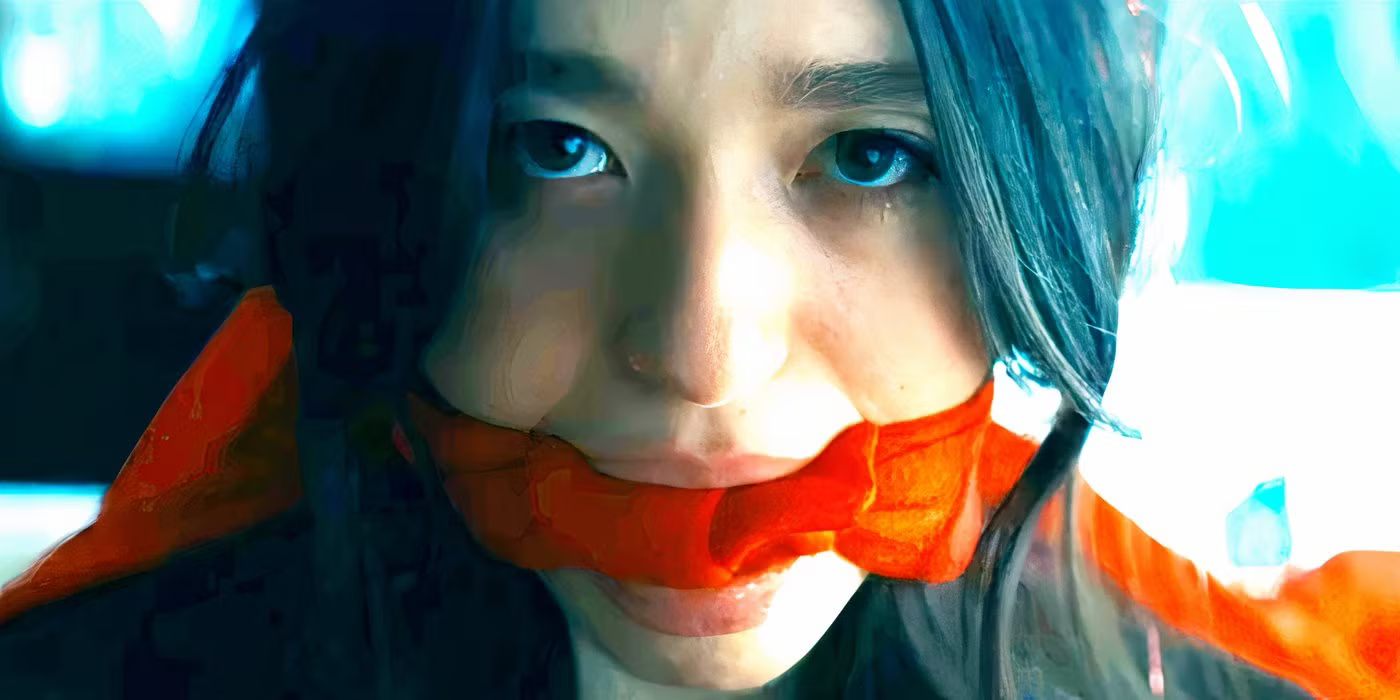
Anora
Sean Baker has been an important figure in American independent cinema for over a decade, so it's only right that he’s finally getting recognized for his filmmaking prowess. Once again exploring the personal and professional lives of sex workers with a nonjudgmental eye, Baker fashions his Pretty Woman-meets-Uncut Gems concept into an exhilarating dramedy that moves from whirlwind romance to home invasion to midnight odyssey to, well, I won’t spoil where it goes. Baker’s films always strike a delicate balance of authenticity, empathy, and humor, and Anora wows as a charming, pragmatic portrait of an outsider making her way in a world where the good life seems just out of reach. — Jared Gores
I remember watching Anora in a packed and hyped crowd at Lincoln Center for NYFF and realizing that I was trying to figure the story out, to be ahead of it. Why are we constantly cutting back to Igor? What purpose does it serve? The second and third time, what was actually going on unlocked for me. There’s the unique shared perspective that Igor has with Anora that he feels so deeply. He, too, is the subjugated one amongst the goons. He, too, is the one without familial or community relationships in this moment. He sees her for who she is, not what she does, which Toros, Garnik and Vanya just never have. It's a beautiful sight to behold that is just wrapped up so boldly in the last ten minutes between that late night conversation and the moment in the car. — Alex Crandall
Challengers
A film full of big swings and overripe choices, but I honestly loved every single one. Tashi is the movie director stand-in, maneuvering these two men in her life, pushing for that perfect transcendental moment of artistry. There is chaos in this film—the score cuts out abruptly, the camera moves violently—but eventually everything works in harmony to produce those final moments of the film and it’s impossible not to leap out of your seat and scream in delight. — Craig O’Callaghan
The sweat, the sound, the thrill that came out of this movie is the best time I’ve had in the theater in 2025. Something about this just got under my skin and had me so engaged. It’s the only film that I walked out of laughing and smiling because Luca Guadagnino had me so thoroughly entranced and when it just cuts off in that last moment, it showed his confidence that he just had me and the whole audience. Zendaya, Mike Faist, and Josh O’Connor are just dazzling in their own unique way as these characters whip around these mile markers in their lives and careers. It left me wanting in only the way it could. — Alex Crandall
Nickel Boys
Nickel Boys is an adaptation so thoughtful and inventive, it retroactively makes every other adaptation of a novel feel sort of lazy. If the first-person camera perspective was just a novelty with no other justification other than to find a new way to invoke a sense of empathy in the viewer, it’d be a success. But the way this technique iterates upon itself, the way it engages with the specific themes and content of the story, make it hard to imagine that it could be told any other way. But most of all, I love what this story has to say about trauma and adversity. It seems like every story about trauma inevitably seeks a hero who emerges triumphant, because the alternative would be too bleak. But this has the inadvertent effect of validating the terrible circumstances that produced the hero on the other side, the pressure that turned the coal into a diamond. Nickel Boys has a refreshingly honest perspective on the horror that creates adversity and what surviving it can look like. Sometimes, success doesn’t mean getting to the other side stronger than you were before. Sometimes success simply means surviving, and maybe starting your own moving business too. — Bob McHugh
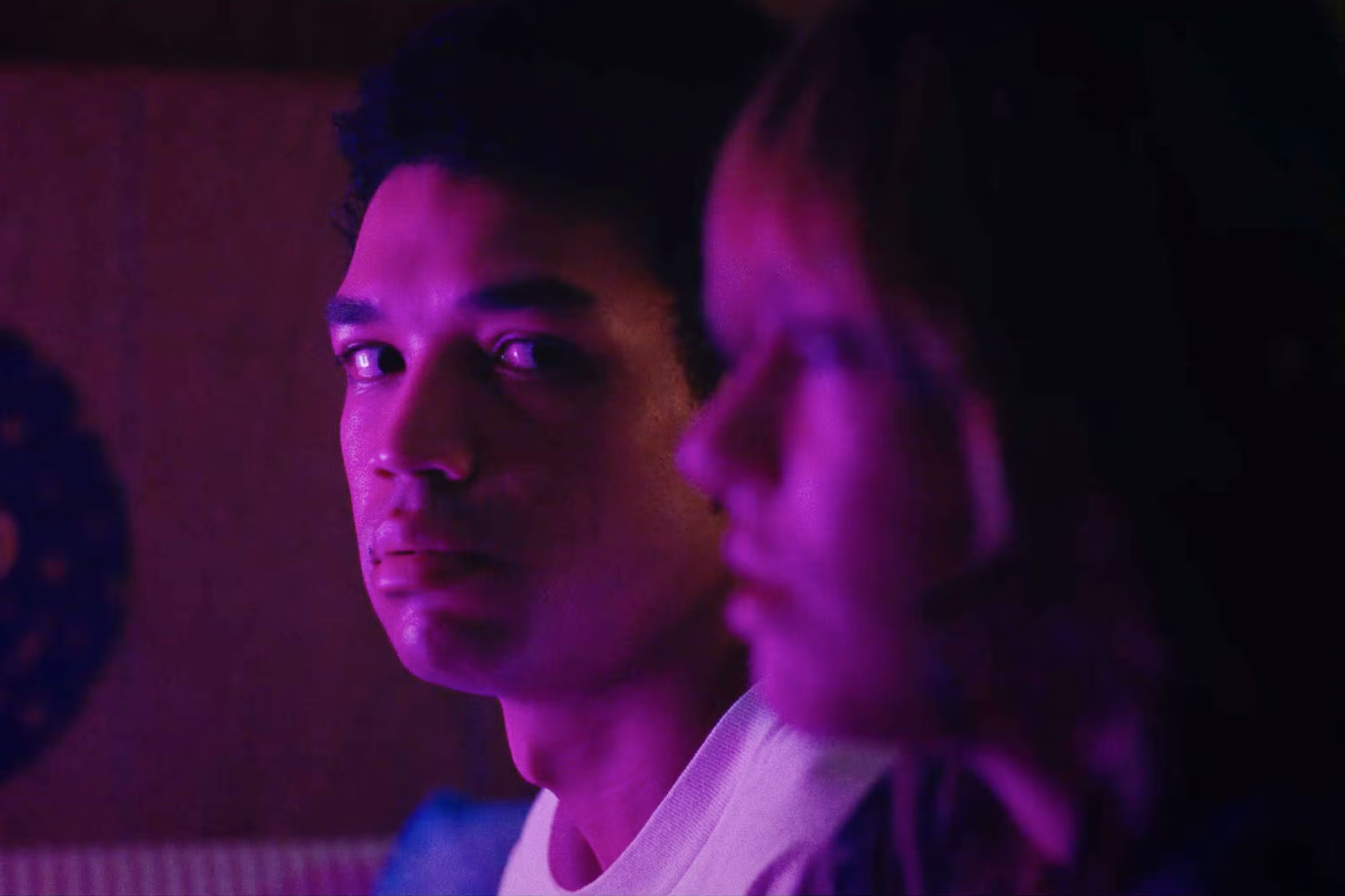
I Saw the TV Glow
As a ‘90s kid whose adolescence was full of Goosebumps books and an obsession with The X-Files (plus Are You Afraid of the Dark? whenever we visited grandparents and had access to cable), I find the fluorescent-tinged VHS tape aesthetic of I Saw The TV Glow immaculate. With vibes upon vibes and a continuous succession of haunting and arresting images, the film puts a Millennial spin on Lynchian dream logic as it investigates nostalgia, memory, media consumption, and identity/gender dysphoria. One of the most visually striking and captivating films of the year, with an unnervingly ambiguous ending that deserves all the style points. — Aaron Maurer
A difficult movie to watch, as we’re locked in with a character who’s trapped in every way possible, and given no assurance that they’ll ever get out. Using a reaction to pop culture as a lens for examining body and gender dysphoria was a theme this year—see also the more brazen if less sophisticated The People’s Joker—and this one threads the needle while still hitting like a hammer. — Rob Staeger
Furiosa: A Mad Max Saga
No one does action like George Miller. You can feel the patient, guiding hand of a master behind every frame. Miller shows he can still provide the thrills of Fury Road (was there a more hype moment this year than when the Mortifiers start flying during the Oil Rig chase?), but Furiosa is overall more deliberate. The cat-and-mouse hunts that open and close the film are excellent displays of ratcheting up tension and desperation between the characters. At the same time, Miller expounds on the themes introduced in Fury Road, showing once again that while there may be no paradise to escape to, the seeds of change can sprout in even the most toxic of soil. — Sam Petitt

Do Not Expect Too Much From the End of the World
Radu Jude’s film pulls you away from the expected, offering a documentary-like day in the life of a gig-economy millennial as she rounds up interviewees for an insurance commercial while filming a right-wing parody livestream. (It’s also intercut with another movie about a female taxi driver from the early 1980s.) I found every minute of this one astonishing and then we get to the final 20 minutes, a single shot of that insurance commercial that doubles as one of the funniest and starkest scenes of the year. — Caleb Shively
Everyone focuses on “Bobita,” the film’s Andrew Tate parody, when talking about this film’s politics, but what really hit me was all the driving. One of the big tells about what’s been going on in the US for the last four years—more than any cultural politics, I think—is the increase in traffic deaths. The depiction and use of the ordinary dangers of ordinary driving is part of what makes Do Not Expect Too Much… special, all the more so because it forms the central support for the rest of the film (much as driving is central to many of our lives). — Jean-Luc de Lemur
Red Rooms
People talk as if “Red Rooms” is as inscrutable as its protagonist, but the devil is in the details. Kellyanne’s dark web handle is LadyOfShalott, which references a famous Tennyson poem about the dangers of isolation. Kellyanne herself lives alone in a glass tower, is wealthy from crypto, and her only friend is a robot. So removed from humanity, she sees what the victims have experienced and fetishizes it. Contrast her response with that of Clementine, who is lower-income and lives with her family, but ultimately says she has compassion for the victims. This is a story about the corrupting effect of wealth and isolation. In an age of extreme loneliness and income inequality, it’s hard to think of a more vital message. — Tom Speaker
Hundreds of Beavers
It feels wrong listing anything else as my number one here, given that this is the movie I saw in a theater the most times in 2024 (three screenings, each with a packed house). I’ve tried to make an effort to make my in-person moviegoing about stuff that’s smaller, weirder, and more personal, and there’s really not much else that fits this bill more from last year than two guys and their friends making a live-action Bugs Bunny cartoon in the backwoods of Wisconsin with a bunch of their friends in mascot costumes. — Ben Smith
ON THE ALSO-RANS
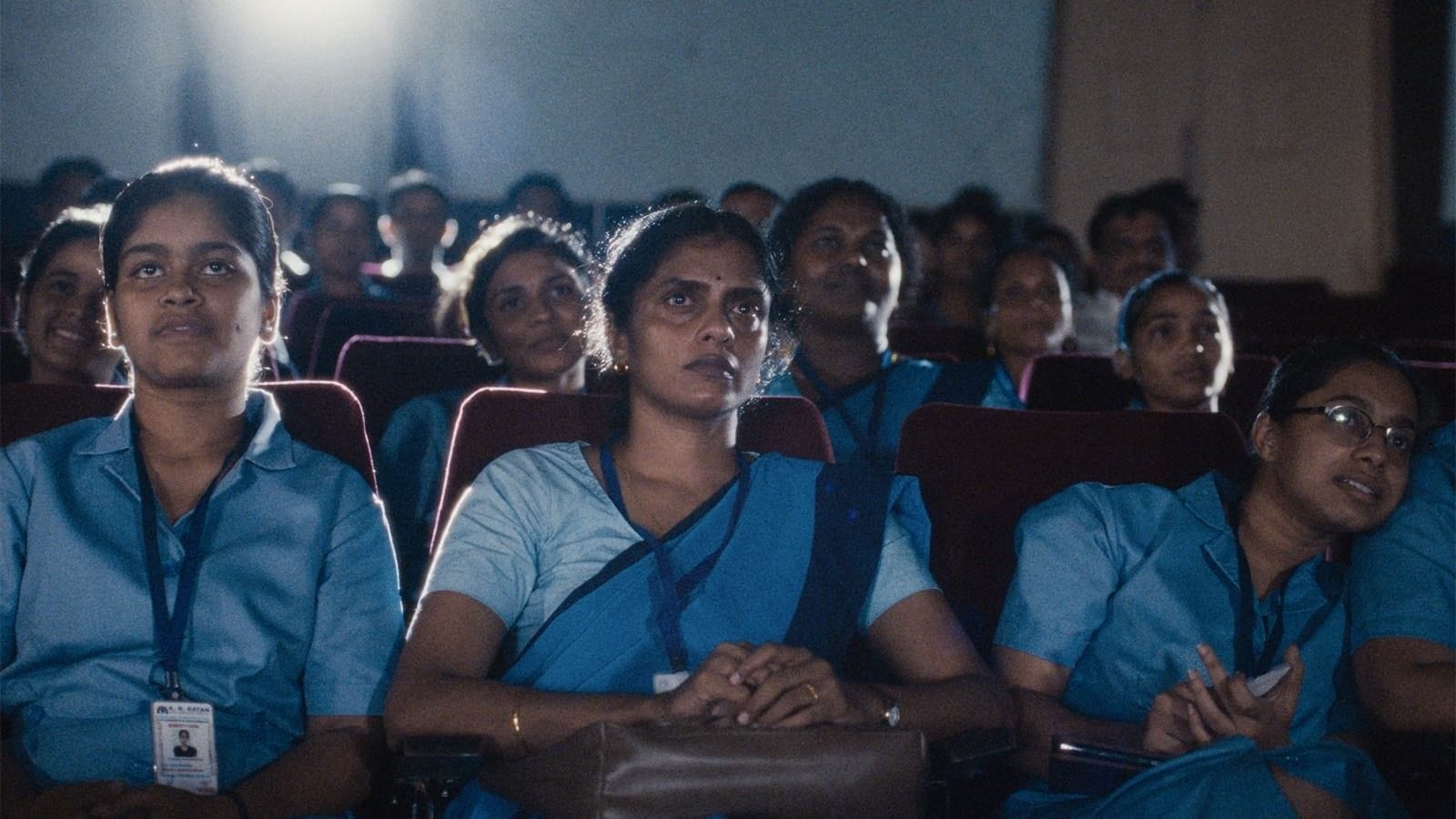
All We Imagine As Light
Been very proud seeing the films directed by Indian women hitting the festival circuit between this, Santosh, Girls Will Be Girls, and Superboys of Malegaon. This might be my favorite. I was a big fan of Payal Kapadia’s documentary A Night of Knowing Nothing and she has managed to translate that wistful tone into something dreamier here.. This is maybe the most beautifully shot movie of the year, and Kani Kusruti is just so engaging to watch on screen. I cannot wait for her next movie and I really hope it proves a breakthrough for Indian film. —Devan Suber
There's a subtlety and grace to Kapadia’s portraiture of women discreetly pushing back against a patriarchal society and social hierarchy that affords them limited mobility. The formal approach shares some DNA with her previous film, the documentary A Night of Knowing Nothing, here using nonfiction-flavored elements to sculpt a city symphony of Mumbai. Kapadia makes yet another clever artistic choice at the midpoint when relocating the story from the bustling, congested urban spaces of Mumbai to the peaceful, rural Ratnagiri seaside, and the picture shifts from realist drama to ethereal phantasmagoria. As I watched this gem unfold, four master filmmakers came to mind: Yasujiro Ozu, Satyajit Ray, Wong Kar-wai, and Apichatpong Weerasethakul. That is good company to keep! — Jared Gores
Close Your Eyes
A eulogy for cinema and a meditation on aging, about how cinema lives forever, especially as we don’t. But unlike other movies about the “magic of movies,” it’s never self-congratulatory or too maudlin. There are no exact answers given to the central mystery at the heart of the story—we’re left with almost as many questions at the end as we are at the start but for a moment we get to reopen a closed cinema, sweep the floors, and gaze in awe at a moving story on a big screen. And what better pleasure in life is there? — Ben Seitelman
The Seed of the Sacred Fig
Carried by four superb central actors, The Seed of the Sacred Fig is a potent reminder of how galvanizing political filmmaking can be when it’s as invested in its characters and the story it’s telling as the message it wants to send. This was one of the few things I saw last year that felt in tune with the state of the contemporary world — Angela Woolsey
Evil Does Not Exist
The #1 film on my list was never in any doubt. Only simple on the surface, Evil Does Not Exist has refused to leave my mind all these many months. Like many of the best films, it invites discussion and reexamination, not only for the haunting and at-first-puzzling ending, but for the elegance and control always on exhibit in Ryusuke Hamaguchi's direction. It contained my single most memorable shot of the year, as well—a side-on tracking shot of a man traipsing through the woods. The camera continues to move as a small ridge covered with trees interposes itself and the man vanishes from view. When the ridge ends and the man is visible again, he is now carrying his daughter piggyback. Pure cinema magic, and not to mention an encapsulation of where we hope the story will go. — Bill Shunn
Walking out of this film, I was mostly confused by what I had just seen. But it has lodged itself in my brain like almost nothing else from last year. It creates such a wonderfully strange and complete world that's self-contained and hermetic but also utterly unforgettable. It's like almost nothing else I've ever seen. — Jamsheed Siyar
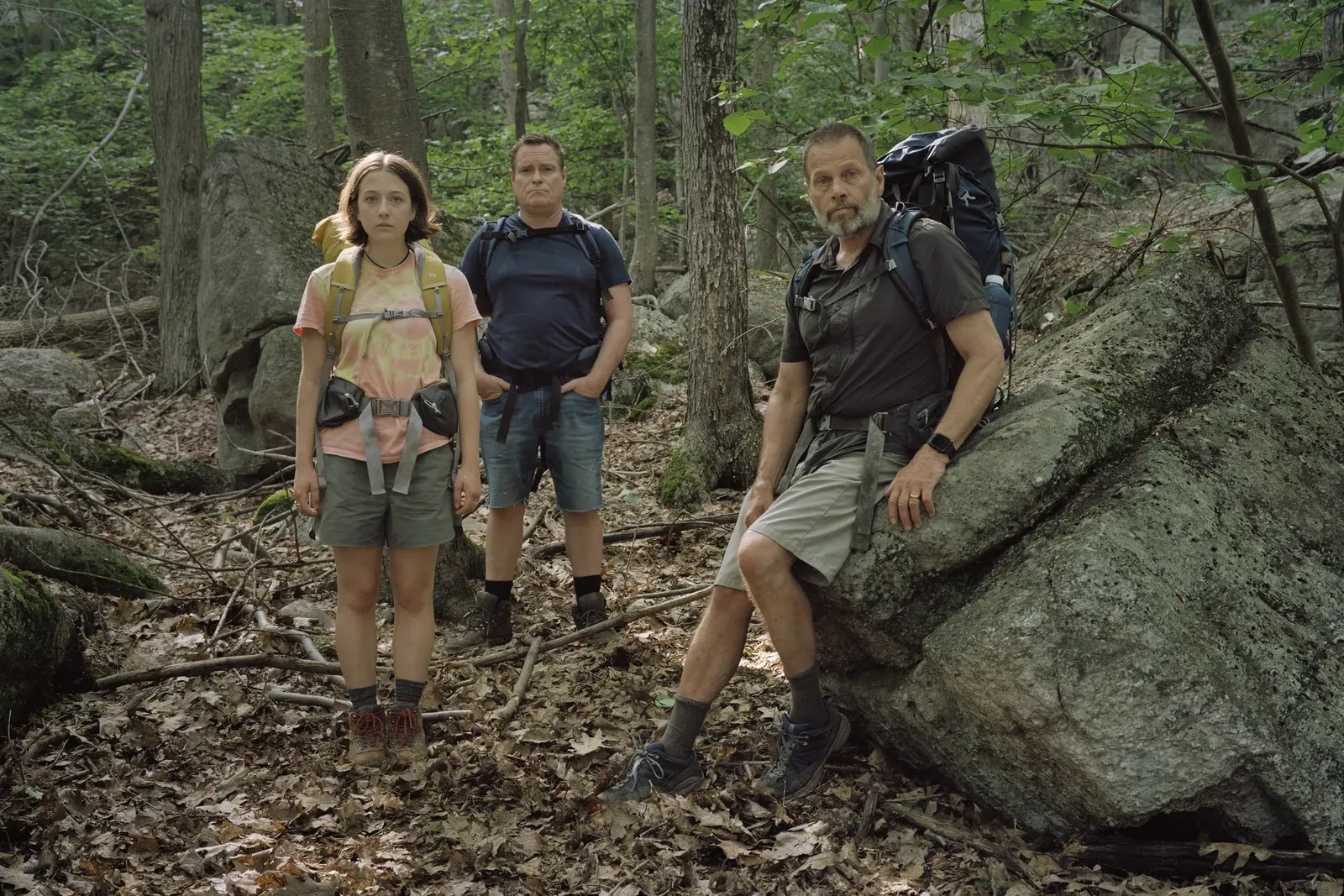
Good One
My immediate love for Good One might be partially due to how it stands on the shoulders of two favorites of mine, Old Joy and The Loneliest Planet, which similarly explore the micro (or macro?) shifts among people immersed in nature. Anyone who’s ever been backpacking with others knows the woods can do all kinds of weird and wild things to relationships—hell, you could throw Blair Witch on this list of hiking films I love because of this. The complex ecology of nature, meticulously depicted throughout, is an appropriate and necessary backdrop for a film that is obsessed with how small moments can have big impacts. In this film, a gesture, a sigh, a hesitation, or two words suddenly have the potential to become blunt-force traumas to the connection between father and daughter at a formative time development in bridging across generations and genders. Autonomy, trust, and dependence are all being navigated by three characters struggling with the passage of time and growing older. In some ways, all three have their whole lives ahead of them, but the brilliance of this film is that while patiently paced, the stakes on this trip, in each moment, each reaction or non-reaction, feel so high. I don’t think I’ve held my breath like this waiting for the next piece of dialogue or minor facial reaction while watching a film in a very long time. — Noah Schuettge
Hard Truths
My favorite Mike Leigh film brings his patented level of depth to a universally relatable drama about grief that echoes throughout a well-developed shared family history that’s unexpectedly hilarious and features the performance of the year. Most importantly, it asks the questions many have long wondered: “What does a baby have pockets for?” So of course it was ignored by the Academy and rejected from multiple festivals. — Amir
Civil War
I expected this to be some “both sides have good people” screed being obtuse in its backstory to be able to deliver a movie that could appeal to everyone, but instead it was a workplace dramedy that was so disinterested in the reasons behind the war because its protagonists need that lack of interest in order to survive, physically and mentally. It’s about people at work, and their job just really fucking sucks. Really great movie that makes a very strong point: photojournalists do this job and send back pictures to remind us that war is bad and terrible and to not do it here, and the world of the movie still chose to do it there. — Virgilio Ramon de la Cruz
The Beast
The Beast is about a lot of things—pigeons, spree killers, bathtubs full of goo—but it’s mostly about connection. More specifically, it’s about the failure to connect, what happens when human beings reach out to each other and find nothing to hold. The Beast externalizes that absence in its post-apocalyptic near future, a depopulated landscape of concrete planes, sterile rooms, and stairways leading nowhere. For three hours, we circle that future like water around a drain. By the time we’re done, it feels familiar and horribly plausible. — Dave Wilson
Girls State
The remarkable thing about this documentary (and its predecessor Boys State) is the way they’re entertaining, insightful and hopeful in a time when real politics are none of these things. We keep saying the children are the future, and one of these times that’s going to turn out to be a positive thing. — Chris Bunk
A Real Pain
As someone who is undoubtedly a David (Jesse Eisenberg), what I liked most about this film was how it acknowledged that people like Benji (Kieran Culkin) might be completely baffling and make uptight people feel uncomfortable, but that such individuals are also on some level good for those people. If someone like David didn’t have that energy around them, they’d politely move through the world holed up in their quiet desperation, struggling to ever cut through their own discomfort. — Ben Vine
Eno
Each screening of this documentary about musician/producer/artist Brian Eno from director Gary Huswit (Helvetica, Rams) is created as a bespoke algorithm pulls from a database of hundreds of hours of video to generate a new version of the film. I saw two different editions in two different cities this year and the underlying structure is incredibly sound, allowing for the archival footage pulled by the program to interact with contemporary interviews in a way that the brain will find connections between even if somewhat unintentional. I was (and maybe still am) somewhat skeptical of the nature of this piece but have found it to be incredibly creatively inspiring and very well curated. — Aaron Maurer
Janet Planet
It starts with the darkest, driest joke imaginable. Are we supposed to laugh? Be afraid? Or simply be curious? As a longtime Annie Baker fanatic, a slow cinema enthusiast, and someone whose favorite place on earth is the Berkshires in the summer, it’s safe to say I never stood a fuckin’ chance against Janet Planet. Baker has taken the lessons from her incredible career as a playwright and crafted a type of cinema that gives enormous imaginative possibilities to her audience. It is a half-created cinema, a style of filmmaking that ascends into something more through the creative spirit of those who watch it, who imbue the silence with all that is unsaid. “To say the film is unsentimental is an understatement: very little is even stated.” But this is not watching paint dry. What transpires over one magical, listless summer between daughter and mother is expertly conceived. Although the film is almost entirely shot through the daughter Lacey’s eyes (save for one single stroke of surreality) the title of the film—referring to Lacey’s mother named Janet—is anything but accidental. This is the story of Lacey’s attempt to understand the inner life of her mother. In the final moments, eleven year old Lacey looks up at Janet and searches for a woman beyond the powers of her pre-adolescent perception. She sees a galaxy of possibilities about who that woman truly is and why she does what she does. Finally, inevitably, it brings a smile to her face. — Sam Fichtner
OTHER OBSERVATIONS
A worry and a hope for 2025: I’ve loved seeing the explosion of diverse voices and storytelling in film in the last five years, but in 2024, the most successful documentary was Am I Racist?, thanks to the power of right wing media and unearned shoulder chips. There’s already been a chilling effect on free expression in newspapers and media thanks to Trump 2.0 though Hollywood thinks itself exempt from such concerns as upsetting politicians, I do worry that the risk-averse mindset of the billionaires who actually run this country (two of whom preside over entertainment studios) will lead to fewer of these voices getting the support and funding they’ve scrapped to earn the last five years. Yet the importance of creating art that cuts through dark times is what’s gotten people through them. My hope is that those critical voices that have something to say, and that we need to hear, can find a way to break through a system that might let fear close its already-narrow window. — Stephanie Kuenn
Perhaps the real death blow of major studios producing movies in the “comedy” category is the realization that small independent artists are defining and redefining that “comedy” at a rapid pace. The funniest film I saw this year was a slow-burn sex farce—The Feeling That The Time for Doing Something Has Passed (produced by Sean Baker, who gave us the quite funny itself Anora)—and in terms of broad silliness that hits their mark: The People’s Joker, Rap World, Free Time, Hundreds of Beavers. All funny, all proudly lower budget. Even the bigger distributors know that the people are craving the laughs; with A24 recognizing some wonderful weirdos: Julio Torres (Problemista), Kyle Mooney (Y2K), last year’s Dicks: The Musical; and Neon had a pair in Babes (Pam Adlon hive stand up) and Stress Positions (put John Early in more movies). Going to pour one out for John Cena and his pretty broad, and admittedly amusing, lunkhead schtick with this year's Ricky Stanicky and Jackpot! — Caleb Shively
Films in 2024 seemed to get a good handle on archival exposition. We’ve seen so many sloppy implementations of news footage to cover a film's tracks in terms of placing the story in time. It’s an easy device to manufacture historical gravity or, frankly, make up for lacking production design. I was particularly moved by the application of archival footage in both The Brutalist and Nickel Boys, sometimes cut into the world of a scene or even boldly going immersive full screen. In both cases, the information spoke to deeper points about the time and place, the former being the formation of Israel and the latter the moon landing. The craft was much more poetic and character-driven than simple production value. I even credit A Complete Unknown for its restraint in this device, using the Cuban missile crisis more as tension to bring Dylan and Baez together. The same cannot be said, however, for Netflix’s Our Little Secret, in which a montage meant to encapsulate the last decade includes the year 2016 being culturally defined solely by Impossible burgers and Stranger Things. — Marshall Granger
My trend for 2024 is that, even as the powers-that-be were promising an AI-generated hellscape, actual creative people pushed back with a year that was low on both Oscar bait and big-budget crowdpleasers and heavy on idiosyncratic, personal projects. Neither a critical and creative success like I Saw the TV Glow nor an utter debacle like Megalopolis could have been designed by either AI or the C-Suite, and the fact that both got made and loomed large in the national conversation makes me hopeful for cinema as a whole. — Mike Vago
Thanks again to everyone who participated. We’re thrilled with the community that has formed around this site. If you’d like to participate in future polls, participate in our comments section, and unlock subscriber-only pieces (including our “What Along With the Reveal” audio commentaries and other features, consider becoming a paid subscriber by clicking the button below.




Discussion